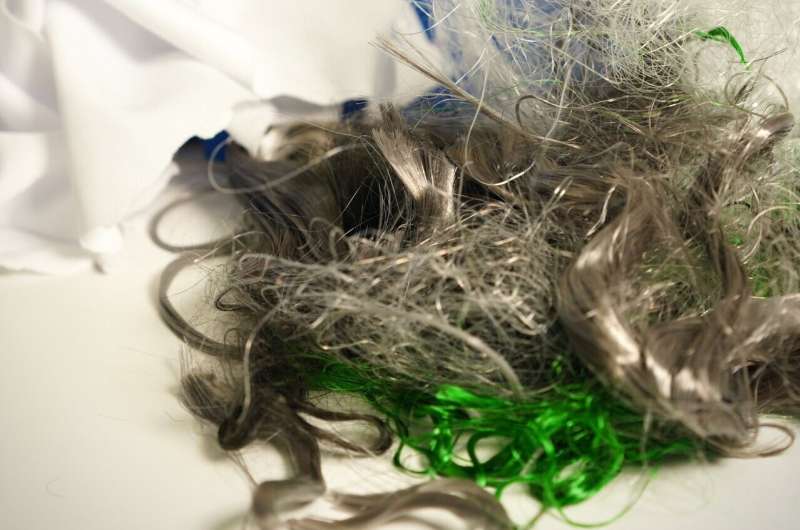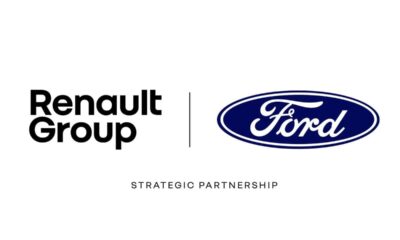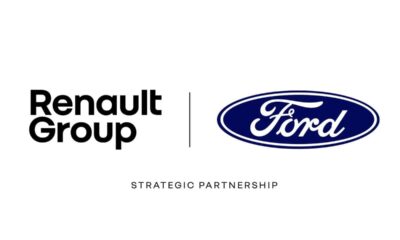Science
Innovative Method Enhances Recycling of Polyester Plastics

Polyester plastics, commonly used in textiles and various consumer products, have long posed significant recycling challenges. A recent study published in the Proceedings of the National Academy of Sciences by researchers from France introduces an innovative approach that could change the way these materials are processed. This new method utilizes heat and the residual catalysts embedded within the plastics during manufacturing, allowing for the breakdown of unsortable polyester waste into reusable components.
Recycling polyester, particularly polyethylene terephthalate (PET), has traditionally involved sorting and separating different plastic types. Effective recycling of PET relies on breaking it down through enzyme-catalyzed depolymerization, transforming it into monomers that can be repurposed for new products. Yet, when polyester is mixed with other additives, such as dyes and plasticizers, the recycling process becomes complicated. The rigid structures of these plastics also hinder the effectiveness of enzymes, making it difficult to access the polymer chains for recycling.
In their study, the researchers developed a method that involves mixing various types of polyester waste in specific proportions, followed by melting the mixture at a temperature of 270°C. The researchers noted that residual catalysts, such as antimony trioxide, left over from the manufacturing process, facilitated a chemical reaction known as transesterification. This reaction creates copolymers with random network structures, which are more amenable to enzymatic breakdown.
To enhance the effectiveness of the process, particularly for waste rich in fast-crystallizing polymers like polybutylene terephthalate (PBT), the researchers incorporated a technique called vitrimerization. This involves adding an epoxy cross-linking agent to the polyester mix, which slows down the crystallization process. The resulting mixture crystallizes at a reduced rate when cooled, making it more susceptible to enzymatic digestion.
After cooling, the solid material was ground and treated with enzymes typically used for recycling PET bottles. The results were promising, yielding high-quality monomeric building blocks suitable for the production of new polyester products. The study revealed that blending PET nonwoven waste with PBT increased the enzymatic depolymerization yield from 20% for PET and 1% for PBT to an impressive 90% when mixed.
This approach challenges conventional recycling practices, which often emphasize sorting over blending. The findings suggest that mixing different polyester types may provide a more efficient and less laborious solution to the ongoing issue of recycling polyester plastics.
The research conducted by Hernan Garate and colleagues represents a significant step forward in the quest for sustainable plastic recycling methods. As the global community grapples with plastic waste, innovations like these could play a crucial role in reducing environmental impact and fostering a circular economy.
This article is based on research reviewed and fact-checked by experts in the field, underscoring the importance of credible scientific communication. For further details, see the original study in the Proceedings of the National Academy of Sciences (2025).
-

 Technology5 months ago
Technology5 months agoDiscover the Top 10 Calorie Counting Apps of 2025
-

 Technology2 weeks ago
Technology2 weeks agoOpenAI to Implement Age Verification for ChatGPT by December 2025
-

 Health3 months ago
Health3 months agoBella Hadid Shares Health Update After Treatment for Lyme Disease
-

 Health3 months ago
Health3 months agoAnalysts Project Stronger Growth for Apple’s iPhone 17 Lineup
-

 Health3 months ago
Health3 months agoErin Bates Shares Recovery Update Following Sepsis Complications
-

 Technology5 months ago
Technology5 months agoDiscover How to Reverse Image Search Using ChatGPT Effortlessly
-

 Technology3 months ago
Technology3 months agoElectric Moto Influencer Surronster Arrested in Tijuana
-

 Technology2 months ago
Technology2 months agoDiscover 2025’s Top GPUs for Exceptional 4K Gaming Performance
-

 Technology5 months ago
Technology5 months agoMeta Initiates $60B AI Data Center Expansion, Starting in Ohio
-

 Technology5 months ago
Technology5 months agoRecovering a Suspended TikTok Account: A Step-by-Step Guide
-

 Health5 months ago
Health5 months agoTested: Rab Firewall Mountain Jacket Survives Harsh Conditions
-

 Lifestyle5 months ago
Lifestyle5 months agoBelton Family Reunites After Daughter Survives Hill Country Floods





















